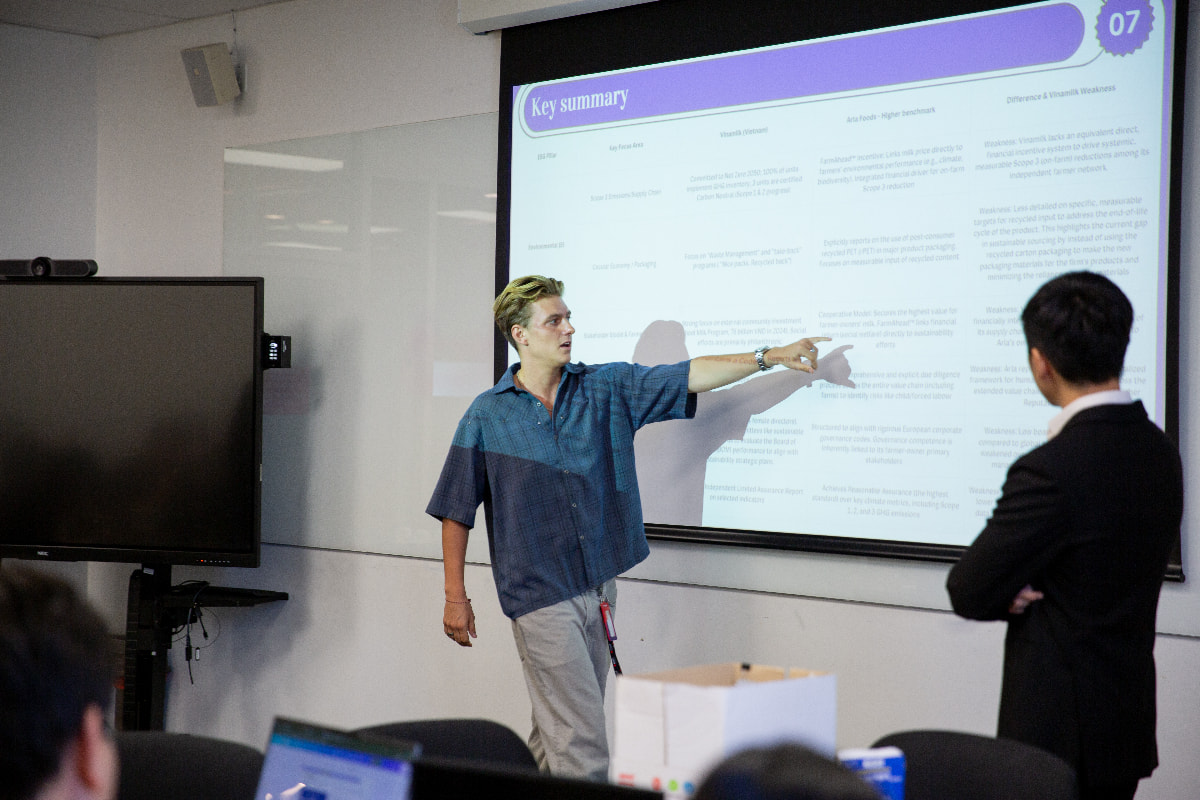From theory to strategic action
In class, that philosophy comes to life through simulations, case studies and dynamic discussions. Students might find themselves debating AI ethics in global supply chains one week, then proposing digital payment strategies for a Southeast Asian market the next. A recent highlight saw students dissect Grab Vietnam’s expansion into cross-border services, designing AI-based forecasting models and localised payment integrations.
Beyond the classroom, industry guests from logistics, fintech and regional e-commerce platforms share their own stories – giving students insight into how theory plays out when unpredictability and pressure hit.
“We look at data privacy, regulatory gaps, consumer trust. Students learn to think critically and act strategically,” says Dr Hazarika. “They walk away with more than just knowledge. They leave with the mindset to lead.”
Real experience, real growth
The course also includes a Work Integrated Learning (WIL) component, allowing students to apply what they’ve learned in real or simulated business settings. This is where everything clicks – where frameworks become decisions, and insights become action.
It’s also where students start to see how the global e-commerce landscape opens doors for local enterprise.
In Vietnam, for example, cross-border e-commerce has become a powerful tool for small businesses to reach international markets – without the need for physical stores or overseas offices. As Dr Hazarika notes, “Global reach is no longer out of reach.” With the right digital tools, even a local brand can compete on a global stage.
But that reach depends on readiness. “Success in this space requires more than just ambition – it requires digital fluency,” he explains. From mobile storefronts to digital logistics, the course equips students with the skills to support businesses – large and small – in scaling up confidently and sustainably.
Shaping Vietnam’s digital future
As Vietnam emerges as a dynamic force in global trade, the next generation of business leaders will play a pivotal role in shaping its trajectory. Managing Cross-border E- Commerce in the Digital Era gives students the tools, mindset and practical experience to guide Vietnam’s transformation from a fast-growing market into a digital commerce powerhouse. Through critical thinking, real-world application, and global insights, students graduate ready not just to respond to change – but to lead it.





